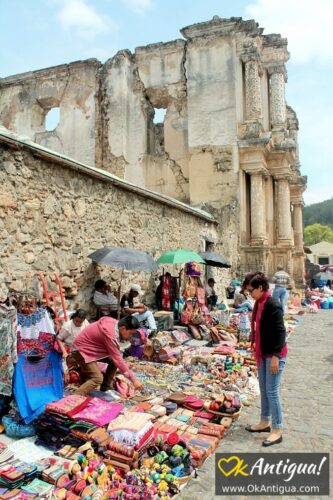 |
| Life at the Foot of the Volcano, Part One |
They die sometimes because of treatable health problems.. not treated. In the small villages the person who manages the local/little farmacia is consulted and sells drugs freely (usually lots of antibiotics)
..not cheap always by local standards so customers buy one pill at a time.
In my town when citizens die, their coffin is hand carried (on shoulders) to the center of town Catholic Church for a funeral (always within 24 hrs of death as there is no embalming). A weeks old baby died yesterday and there will be a tiny white coffin going down the street this afternoon with mourners draped in black following it. Most often women carry the coffins of women and men with men.
 |
| A newborn baby wrapped and carried in a Rebozo |
There is National Hospital near Antigua (free) but they often only can handle baby birthing and a few broken bones/etc. Drugs/tests etc must be purchased outside of the hospital by relatives (who sometimes don't have transportation or money). Once I had taken a friend to the Emergency Room and a old/old women arrived, near death, laying in the flat bed of a battered pick up with no cushions.
We do have ambulance service for emergencies in our village and that is a very good thing...but, our village is a very well-run operation (brilliant mayor) and there is health care by authentic professionals (Dr´s without borders/HELPS/others and Italian dentists and there is also a half/day nurse at the Municipio Health Office and a part time nutritionist at the town school) arriving from time to time...but, the general health needs are endless, the two country doctors are overwhelmed (about $6 dollars/U.S. a visit) and illnesses and infirmities are as varied as anywhere else so most of us do what we can do to help others and those close to us. The more elegant physicians in Antigua (and more so in Guatemala City) are beyond the financial realities of the finca workers, the pickers of coffee or many everyday folk (visits around $50+ U.S.).
Families are especially cosupportive (except where alcoholism and other forms of abuse destroy relationships and result in critical neglect but even here there are two everynight Spanish AA Meetings) but friendly lifelong neighbors and outsiders help too (some religious and some just care about other human beings).
Both Women and Men work very hard here everyday. They are out working before sun up and still at it after dark in the campo. There are no welfare checks. No disability checks. No unemployment checks. Recently a father died in a motorcycle accident on the way to work leaving four small children and a wife without ANY funds.
Don't ever make the mistake of thinking that most people are lazy South of the Border(s) or all men are simply machismo/worthless bums...that is a blatant attack on a whole group of people who struggle and will go to any length to feed their families (and cover their homes with lamina).
Guatemalans are tough, cheerful and most are able to wish you a good day with a smile as they pass your way. But one can often/easily see that desperation makes people do desperate things. Boundries of acceptable behavior blur. Of course there are common criminals, everyday conartists (foreign visitors/residents and locals) and gang related thugs. The police are feckless (normally as they are scared to pry too deeply into the personal affairs of others). Passions can run on high/fierce. The Army is rarely visable after the long civil war (which ended almost 20 years ago).
Antigua, and other outposts of tourism and luxury are not representative of everyday life for the majority of Guatemalans. Poco a poco/little by little schools are improving and outside groups come, and go, bringing some support and educational backup opportunities and fresh learning materials for children and adults. Even in some of the tiniest indigenous villages they are now receiving computers with non-internet back-up resources which provide Spanish pods for learning Spanish and/or English educational aids. Educating humanity is a worldwide effort that is gaining ground. Villagers are USING modern resources (with huge enthusiasm for learning by all ages). Even internet cafes (without the cafe and charges are around .50 cents/U.S. an hour) are popping up in my little village.
Ask Joan Fuetsch (facebook friend of mine or http://ricebeansandtortillas.blogspot.com/) as she knows much about rural learning progress. Joan gives freely of herself (unpaid) and is an expert at connecting the outside ¨learning¨ world (including huge foundations like the Gates Group) with the smallest of humble villages and villagers in Guatemala. She does it by cultivating one private person/friend at a time and in cooperation with her Rotary Club in the San Francisco Bay Area who often support Joan Fuetsch rieckenfriends@gmail.com
Always beware of NGO´s with heavy overhead and who are not FULLY transparent financially nor nimble and quick to act on projects...find out where EVERY dollar you give goes and how it is spent. Surface ¨appearances¨ can be deceiving. Hands on is best. Give freely but responsibly, keep your eye on the ball and follow up on ANY donation or come visit us in person and see for yourself. Guatemala is a beautiful place to visit and foreigners are quite safe and very welcomed and appreciated.
Leonardo Ricardo/Leonard Clark Beardsley
Sacatepequez, Guatemala
Central America




.JPG)

























_-_James_Tissot_-_overall.jpg)















No comments:
Post a Comment